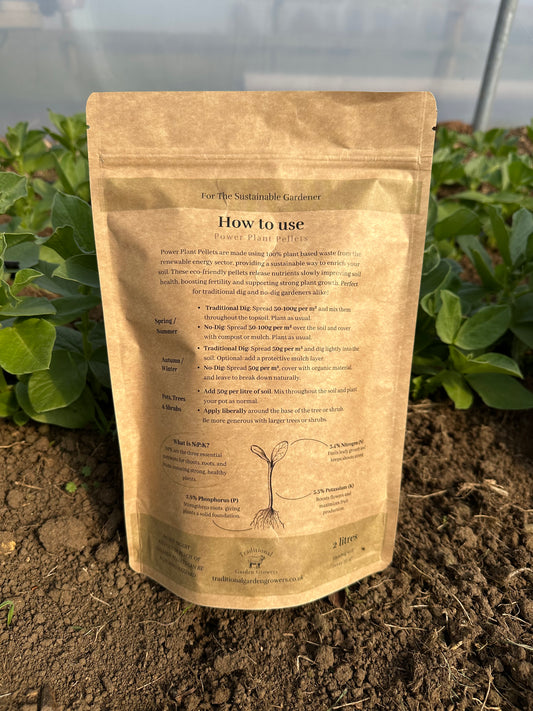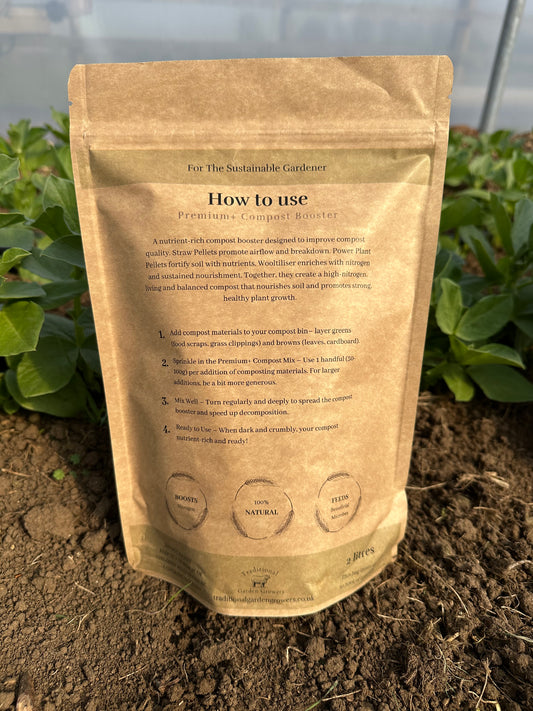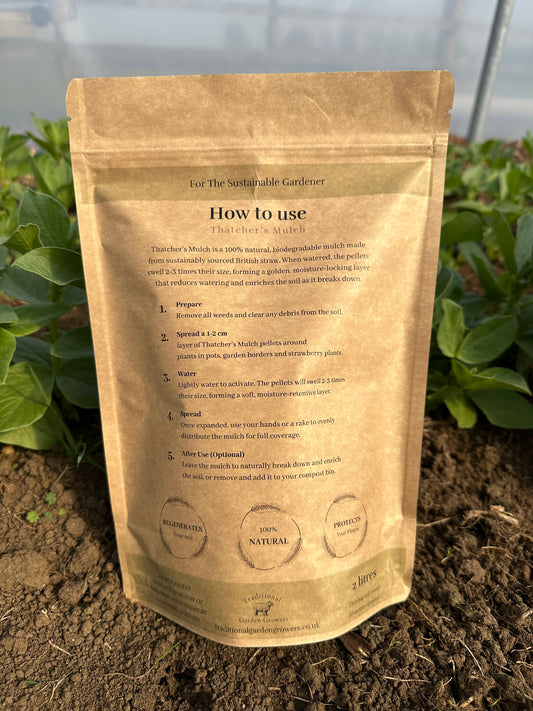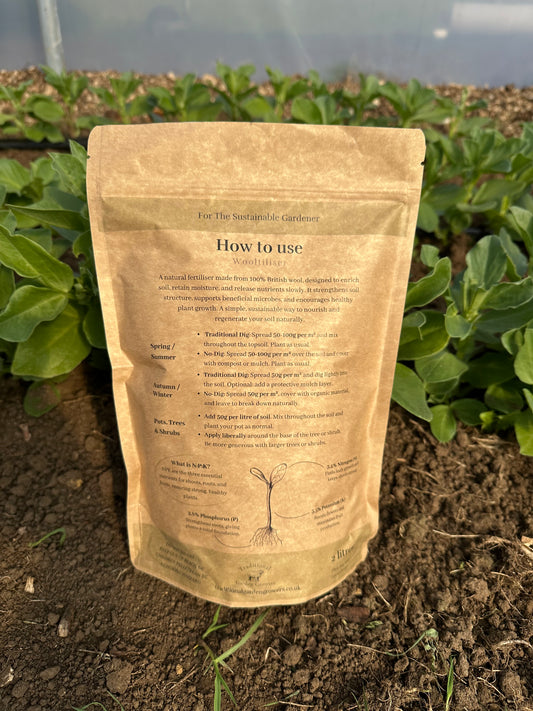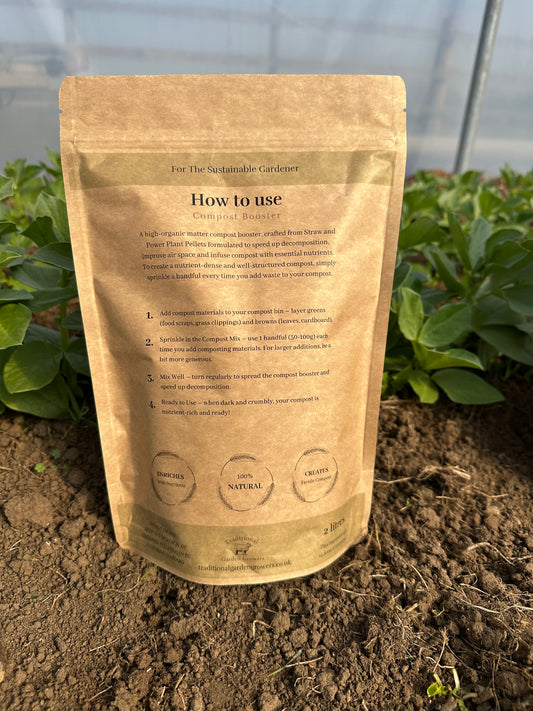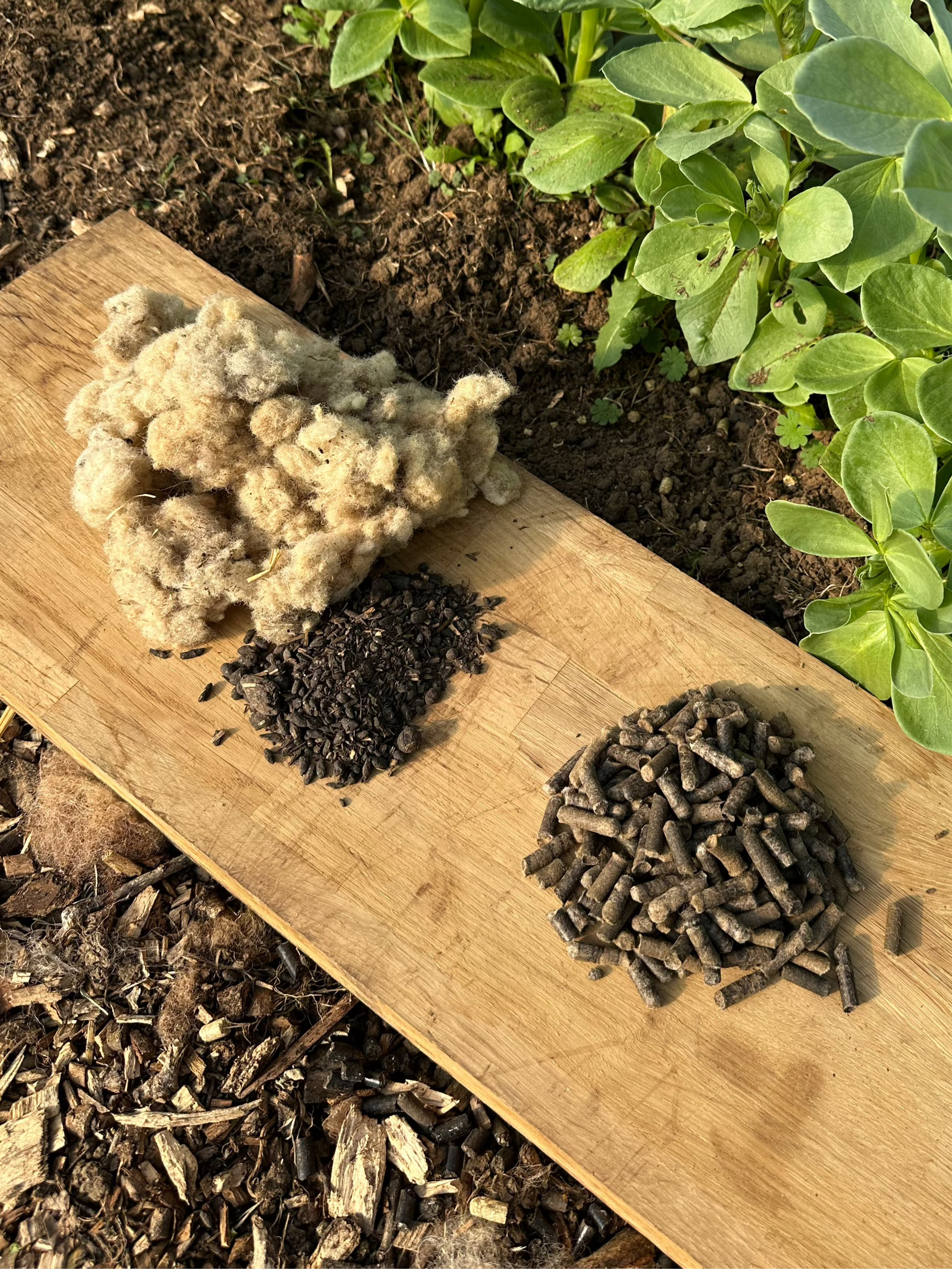
Grow with Biology, not Chemistry.
We make pellets because we are growers
Pellets developed on our own farm to solve real soil problems
Pellet range
-
Power Plant Pellets
Regular price £10.99 GBPRegular priceUnit price / per -
Premium+ Compost Booster
Regular price £12.99 GBPRegular priceUnit price / per -
Thatcher’s Mulch
Regular price £10.99 GBPRegular priceUnit price / per -
Wooltiliser
Regular price £12.99 GBPRegular priceUnit price / per -
Compost Booster
Regular price £11.99 GBPRegular priceUnit price / per

Wooltiliser Winner 2025
We are very proud to announce that our very own little wooly baby, Wooltiliser won this years Wool Innovation Awards! Get yours right here!
What's new?
-
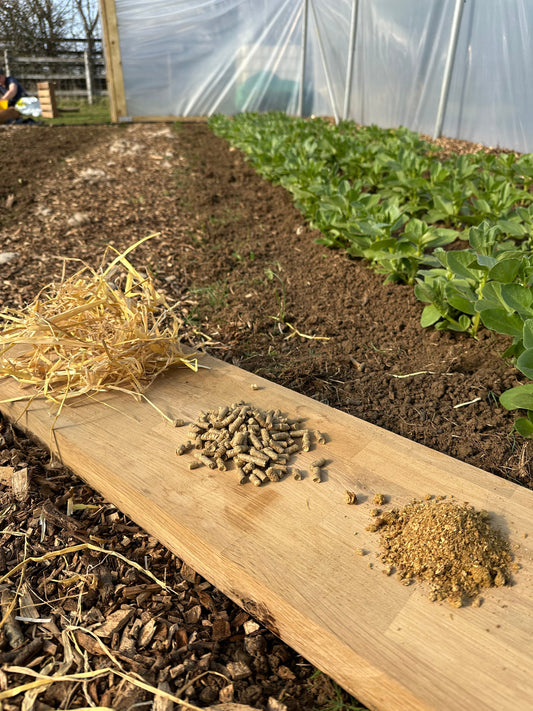
Thatcher’s Mulch – A Natural Straw Pellet Mulch
We’re excited to introduce our new mulch—Thatcher’s Mulch! Made from straw pellets sourced from a local organic farm, this mulch is completely chemical-free and perfect for sustainable gardeners. We’ll be...
Thatcher’s Mulch – A Natural Straw Pellet Mulch
We’re excited to introduce our new mulch—Thatcher’s Mulch! Made from straw pellets sourced from a local organic farm, this mulch is completely chemical-free and perfect for sustainable gardeners. We’ll be...
-
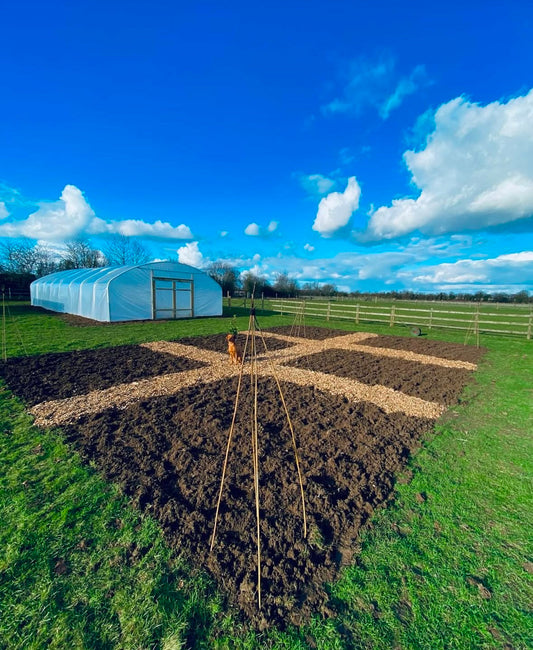
Establishing Our Herb and Edible Flower Garden
We’ve recently set up our herb and edible flower garden, transforming a former grassland area into a productive and wildlife-friendly space. To prepare the ground without chemicals, we rotivated the...
Establishing Our Herb and Edible Flower Garden
We’ve recently set up our herb and edible flower garden, transforming a former grassland area into a productive and wildlife-friendly space. To prepare the ground without chemicals, we rotivated the...
-
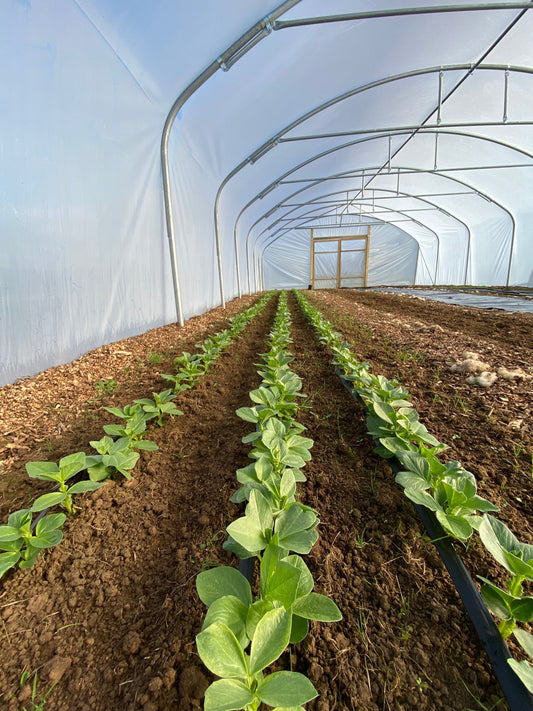
Early Broad Beans and Preparing for the Season ...
This winter, we took a big step forward in our growing setup by establishing our first large polytunnel. Having this protected space has allowed us to get a head start...
Early Broad Beans and Preparing for the Season ...
This winter, we took a big step forward in our growing setup by establishing our first large polytunnel. Having this protected space has allowed us to get a head start...


